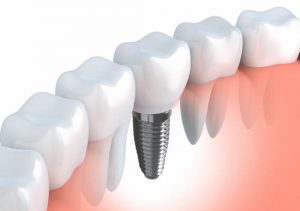Tooth Implant Recovery
Post treatment care and advice for our Cygnet Dental implant patients
 Dental implants are becoming increasingly better known and the fact that some celebrities have openly admitted to having this treatment to improve their smile has probably helped to increase the number of people that are now aware of the procedure. As people see the results of this treatment, a growing number are also looking at these as their first option, rather than dentures, when they lose a tooth and wish to have it replaced.
Dental implants are becoming increasingly better known and the fact that some celebrities have openly admitted to having this treatment to improve their smile has probably helped to increase the number of people that are now aware of the procedure. As people see the results of this treatment, a growing number are also looking at these as their first option, rather than dentures, when they lose a tooth and wish to have it replaced.
Although placing a dental implant is a sophisticated procedure that requires both the use of modern technology, such as scanning equipment, along with the skills of a dentist specifically trained to carry it out, the fact is that much of the success of the treatment comes from the way that the implant is cared for after it has been placed.
This procedure does have a very high success rate, providing that it is carried out with a registered dentist in the UK such as at your own Wickford dental clinic. Where implants do fail, it is usually because they have been placed by someone without the relevant skills and/or where the patient has not followed the important aftercare instructions given to them. In today’s blog, we will take a look at the importance of good aftercare and what you need to do in order to keep your new implants healthy.
Immediate aftercare
When you have undergone an implant placement, it is only natural that you may feel sore and there might also be some localised swelling and possibly bruising too. This is natural and it is important that you are kind to yourself and your new tooth implant as this settles down.
To keep yourself comfortable, you may wish to take your usual painkillers until the discomfort subsides. Your dentist will be happy to offer advice on this and how to be as comfortable as possible. You will also be given full instructions on how to keep your new implant clean at this stage of its life. You will need to be careful about what you eat as well and in the very early stages, only liquid food should be taken. These first few days are important to allow the osseointegration stage, where the implant and bone start to bond, to start to take place.
Intermediate aftercare
After a little while, any discomfort and swelling should have started to ease. Even if you feel OK though, you should still take care about what you eat. At this stage, your dentist may suggest that you move from purely liquid food to softer, solid foods. These might include the likes of yoghurts, ice cream, soups and even well cooked pasta (definitely not al dente!). Trying to move on too quickly and eating harder foods could damage the new implant and cause it to fail.
Your dentist will advise the correct time to start brushing your teeth following careful monitoring. You may not be able to use your usual toothbrush initially and may need to use one with much softer bristles. You may also be recommended to use a mouthwash as well for additional protection against infections. Please follow your dentist’s advice on this.
Longer term aftercare
After a while you will be able to resume relatively normal eating habits. Although you will eventually be able to eat anything that you want, including harder foods, we would still suggest that you exercise caution, perhaps eating fish rather than steaks for example. The easier you make it on your new replacement tooth, even at this stage, the better it will be. Before long, you will be able to use your new tooth to eat any food that you wish. Once your new implant is fully integrated, you will still need to keep it clean. Although the crown cannot decay as it is made from an artificial material, the main threat to a dental implant comes from gum disease and it is this area especially that you need to keep clean.
Good quality brushing, flossing and having your teeth professionally cleaned by the hygienist at the Cygnet Dental Practice should be enough to keep your new implant strong and secure. Make sure too, to have a regular check up with the dentist so that your implant, along with your natural teeth, can be monitored on an ongoing basis.
Finally, at all stages of aftercare, as well as for a period before your treatment, you must refrain from smoking and excessive alcohol consumption. Both of these are likely to lead to poor gum health and will significantly increase the risk of implant failure.
If you would like to discover more about implants and how they can be used to provide a replacement for lost or missing teeth, why not call our Wickford dental clinic on 01268 733078 to arrange an initial consultation with an implant dentist? We’ll be pleased to offer full advice and check your suitability for treatment.
